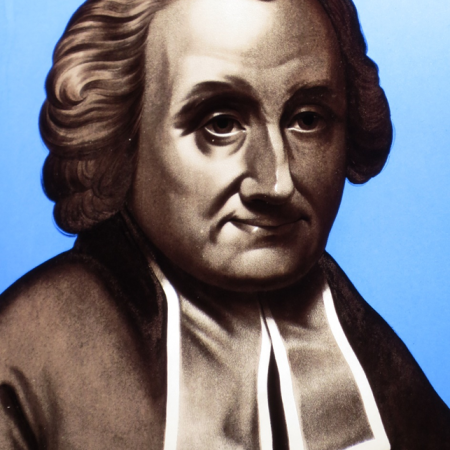Here’s this week’s inspirational delve into the past by Paul James-Griffiths of Christian Heritage Edinburgh. This week he looks at how prayer was vital in the cause of the world mission from Scotland. The person particularly connected with the prayer movement that prepared the way for world mission was Revd Dr John Erskine.
The famous English revival preacher, C.H. Spurgeon, once said, “Whenever God determines to do a great work, He first sets His people to pray.” Fervent, Christ-centred prayer has always prepared the way for Christian revivals and significant breakthroughs in the world. There had already been praying groups before the George Whitefield revival in Cambuslang of 1742, but it was during this extraordinary movement near Glasgow, that God raised up John Erskine who threw in his promising law career to become a Presbyterian minister. We have already met John Erskine in my article for Week 116. However, his ministry as God’s catalyst for prayer was vital. The burden of his heart was first for a revival of the church in Scotland and for a national awakening back to God, then for a global revival and awakening. Just as God used Count Zinzendorf to pioneer the prayer movement at Herrnhut in Germany, which triggered off the Moravian world mission movement in the 1730s, so God raised up Revd Dr John Erskine of Edinburgh for that same purpose, a decade later.

Image: Revd Dr John Erskine (1721-1803), photo at ETS, Paul James-Griffiths
John Erskine was so focused on God, that he once bumped into his wife whilst prayer-walking in the Meadows in Edinburgh. That evening Mary mentioned that he had bumped into a woman that day. He recalled it, but did not know who it was. “It was me, your wife, and you didnae recognize me!” she said. Erskine may have been an eccentric, but he was like an Exocet missile in his prayer life. Prayer oozed out of him, which caused many other Christians to gather round him to join him in prayer. A network of ministers began to appear across Scotland, with one voice praying through God’s promises, repenting of sin, and leading their people in passionate prayer for global revival and awakening. Out of this grew the movement called Concerts of Prayer, which was nothing to do with musical entertainment, but was all about intercession for the nations. As I wrote in Week 116, “Erskine, full of enthusiasm, produced a small booklet called Memorial,in which he laid out the biblical principles of praying for revival and awakening. This had been inspired by Revd Robert Millar of Paisley Abbey, who wrote two volumes on world mission in 1723, called The History of the Propagation of Christianity and the Overthrow of Paganism, which was printed in Edinburgh.”
This fervour for prayer sprang over to America through Erskine’s Memorial booklet, with 500 copies being sent to Boston in the 1740s. Revd Jonathan Edwards was so stirred when he read Erskine’s pamphlet, that his passion for revival and awakening burnt so brightly that he published his work, An Humble Attempt to Promote Explicit Agreement and Visible Union of God’s People in Extraordinary Prayer for the Revival of Religion and the Advancement of Christ’s Kingdom on Earth, Pursuant to Scripture Promises and Prophecies concerning the Last Time (1747). The result was an explosion of prayer, revival and the conversion of many thousands of people in America.
In Scotland, largely through God’s grace working in John Erskine, societies to reach both our own people and the nations, sprang up, with over 57 mission organisations being pioneered between 1795 and 1825. It was out of this foundational movement that Scotland’s passion for world mission erupted. Thus, we see a church advancing on its knees before an army of missionaries flooded the nations in the 19th century.
“If My people who are called by My name will humble themselves, and pray and seek My face, and turn from their wicked ways, then will I hear from heaven, and will forgive their sin and heal their land” (2 Chronicles 7:14, NKJV).
